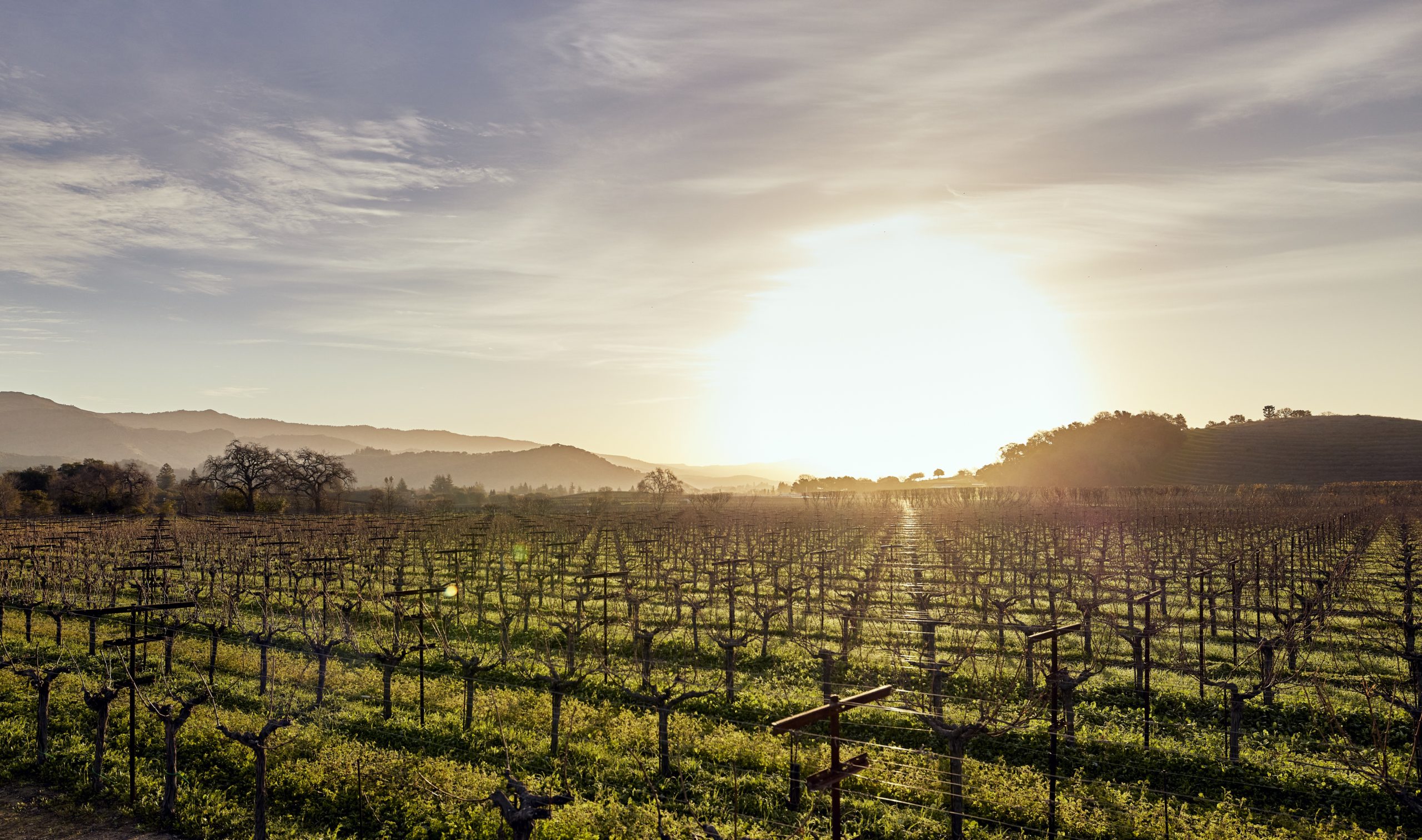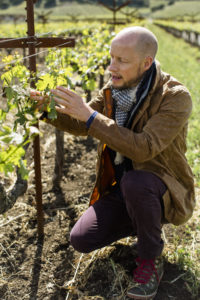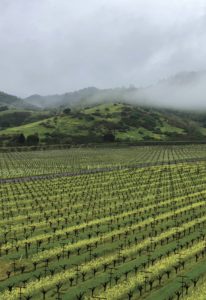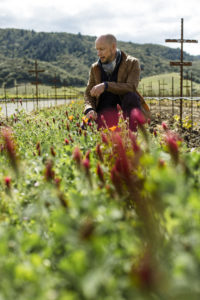
Dec 1, 2021
Dominus Estate’s organic, dry-farmed vineyards create harmony with the land
Organic farming is a natural extension of the long-held philosophy at Dominus Estate that vines produce more balanced and complex grapes when grown in harmony with the environment.
The decision to transition to organic seemed a natural one for its Napanook Vineyard, which has been farmed organically for many years prior to certification and promotes the fact that healthy, thriving and vital soils are key for a successful yield.

“Organic viticulture ensures the vineyards are free of synthetic pesticides and herbicides, which encourages soil biodiversity,” said Tod Mostero, director of viticulture and enology at Dominus. “We believe this is the way vines should be farmed for the health of our field workers, consumers and ecosystem, and the quality of our wines.”
Dominus has its unique partnership with the land – an old world style adopted from owner Christian Moueix’s native France. Every aspect of the vineyard – from variety to row orientation, canopy shape to overall crop management – is determined by a solid understanding of the land’s soil ecosystems, the natural environment, and, even more specifically, the microclimate.
“This practice increases the vines’ connection to the land, promoting their growth in harmony with their surroundings,” Mostero said. “In this way, they become part of the land and in turn produce grapes that taste like a clear and individual expression of the place.”
These older techniques also extend to the cellar, including hand racking using the esquive. It’s a slow technique requiring time and care to remove all of the sediment during aging, which clarifies the wine and increases its purity. By improving the microbiological stability and brilliance, said Mostero, it allows the winemakers to avoid unnecessary fining agents and excessive filtration.
It’s a minimal intervention approach that involves picking grapes at the peak of complexity and maintaining detailed attention to the winemaking decisions that preserve the character of the fruit.
“One example of that is our respectful approach to extraction during fermentations and the limited use of new barrels, which can veil the individual personality of the wine,” Mostero said.
Taking it even further is the estate’s use of dry farming – a technique used for non-irrigated cultivation – across all of its acres. For those who are skeptical, pre-1970s Napa vineyards were all dry farmed. Because of this, all the classic rootstocks have adapted well, and Dominus experiences no significant limits in yields because of this method.
In fact, after any necessary crop thinning, the 102 acres planted at Napanook Vineyard produce approximately 350 tons annually.
The art of dry farming

“Dry farming is a proactive process that starts with choosing an appropriate vineyard site,” said Mostero.
Choosing and preparing a proper site to encourage deep root growth is key for a successful dry farm operation. For Napa, which has a dry summer climate, the region’s alluvial fans can be adapted to dry farming, allowing the vines to receive small amounts of water continuously throughout the season without being completely dependent on irrigation. During the first and second years of establishment, providing water 1-2 times during the growing season encourages the plant’s roots to search deeply for water, which allows the vine to become self-sufficient.
The savings in water usage speak for themselves.
If a typical vine on drip uses 8-10 gallons of water, and there are 1,000 vines per acre, a single irrigation application would require about 8,000-10,000 gallons per acre. Multiplied across the season at 8-10 applications, and dry farming can save 64,000-100,000 gallons of water per acre.
“Hard to believe,” said Mostero, “but for our 102-acre vineyard, one irrigation at 10,000 gallons per acre would correspond to more than 1 million gallons.”
It’s quite the savings in water-challenged California, which confirms a significant point of the technique’s concept – limited amounts of water throughout development creates vines that are simply better adapted to drought conditions
than irrigated vines. Dry-farmed vines are more effective at transporting water as a result of deep roots and tight vascular systems that increase pumping capacity.
“This allows dry-farmed vines to excel in drought years,” said Mostero.
Dominus’ Napanook Vineyard has been dry farmed since 1838, when it was planted by George Yount, a recipient of one of Mexico’s earliest land grants that stretched for nearly 12,000 acres in then-named Alta California, and who is credited with being the first American settler in what would become Napa County. (He is also the namesake of the famed town of Yountville.)
During the transition to organic, there has been success with 110R, Rupestris St. George, 101-14 and 3309 rootstocks. Riparia has shown to be overly vigorous in wet spring years, but has performed better in drought years.
“Our deep soils and the flow of underground springs from the Mayacamas mountains aliments our vines over the dry summer months and a wide variety of rootstocks thrive,” Mostero said.
The Napanook vines are planted on a Mayacamas benchland alluvial fan composed of bale loam, clay loam and some Keefers gravelly clay loam.
Outside the vineyard

Dominus Estate puts forth a strong effort in being leaders of sustainability. In addition to dry farming, solar power generation complements the operation’s attention to energy and water use in the winery and conservation of resources, as does the importance of soil health and regenerative farming.
But sustainability also happens beyond the soil and plants themselves. Fair wages, housing and benefits contribute to social equity. The estate also actively participates within the community to engage fellow growers and encourage them to become sustainable leaders within the international wine industry.
“The only means to affect meaningful change,” Mostero said, “is to work collectively as a community.”






